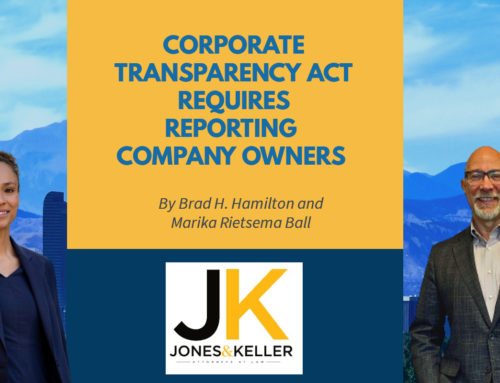On April 13, 2015 Governor Hickenlooper of Colorado signed the Colorado Crowdfunding Act. The Crowdfunding Act becomes law on August 5, 2015, and on May 7, 2015 Colorado Securities Commissioner Gerald Rome said that he anticipates the regulations will be final by that date so that Colorado businesses will be able to raise money in a crowdfunded offering beginning August 5, 2015. Under the Crowdfunding Act, offers can be made solely in Colorado, under the federal intrastate offering exemption. This means that the offers may be made only to Colorado residents, and only Colorado residents may invest. In addition, the offering must comply with the federal intrastate exemption, which means, among other things, ownership of the stock must not leave Colorado for 9-months after it is purchased.
I discussed the requirements for crowdfund offerings in Part 1 of this article; this Part 2 discusses the role and requirements for “intermediaries” who provide the Internet website for offerings.
Before the JOBS Act was passed three years ago, “crowdfunding” in the U.S. comprised only donations, or pre-sale purchase of goods or services, through websites such as gofundme, KickStarter, and indiegogo, and not the sale of securities. The JOBS Act required the SEC to establish a procedure for small securities offerings to a large number of investors, and in 2013 the SEC published proposed “crowd funding” rules, but they have not yet been approved and adopted. As a result states have begun to adopt their own laws and regulations to enable businesses to raise money by offering securities to “the crowd,” and now Colorado has followed suit.
In a private placement, the issuer may, and often does, sell its securities directly to investors. However, the issuer cannot sell its securities directly to the public in a crowdfund offering, for example, through its own website. In Colorado securities can be sold in a crowdfund offering by a registered broker-dealer, a registered sales representative (stockbroker) or an online “intermediary.”
An online intermediary is a website that is not a broker-dealer or stockbroker, and does not offer securities except for crowdfund offerings. Before offering online intermediary services, the intermediary must:
- File a statement or form with the Colorado Division of Securities disclosing the following:
- identity, address, contact information, and names of the officers, directors, managers, or other persons who control the company;
- a consent to service of process; and
- an undertaking to provide investors the offering information required by the Crowdfunding Act.
- Comply with reporting and filing rules of the Securities Division. The rules have not been published yet, but the Crowdfunding Act says the Securities Commissioner may require intermediaries to file financial information, make and retain specified records for 5 years, and establish written supervisory procedures to prevent and detect violations of the Crowdfunding Act and rules. I anticipate the rules will include all of these requirements
- Maintain records of all its offers, which must be available to the Securities Division on request and subject to division examination at any time.
- Not have any ownership or financial interest in, or be affiliated with, any issuer it conducts offerings for.
Intermediaries cannot charge commissions on securities sold. Under both federal and state securities laws, only registered and regulated persons such as broker-dealers and stockbrokers can be paid commissions. Since intermediaries are not registered, they cannot be paid based on the amount of securities sold. Intermediaries have two fee options, and they can use one or a combination. They may charge (1) a fixed fee for each offering, or (2) a variable amount based on the length of time the securities are offered. As a result, intermediaries will have several fee options. For example:
- a flat fee unless the offering is not sold within a number of weeks, and then an additional fee for every week the offering remains open;
- or a fee for every week the offering remains open, but not less than a fixed amount, which will guaranty the intermediary a minimum fee even for offerings that sell out very quickly.
No Advertising?
An intermediary cannot promote a crowdfund offering – the Act says: “An on-line intermediary shall not identify, promote, or otherwise refer to any individual security offering by it in any advertising for or on behalf of the on-line intermediary.”
An issuer cannot promote its crowd fund offering either, because issuers are restricted to distributing a notice that can only state the company is conducting an offering, the name of the intermediary, and a link to the intermediary’s website.
Non-securities crowdfunding offers, like the recently extremely successful effort by Alan Tudyk and Nathan Fillion to raise funding for the series Con Man on indiegogo, can use social media to publicize the opportunity. Tudyk and Fillion used their extensive Twitter and facebook followers to gain momentum and attention for the Con Man fund raise. Companies selling securities in a crowd funded offering through an intermediary will not be able to undertake any similar advertising, promotion, or sales campaigns, and will instead have to rely on investors who follow intermediaries looking for investment opportunities.
Although the Colorado Crowdfunding Act has several advantages over the proposed SEC rules, it is still a very expensive option when compared to a traditional private placement, and only time will tell if it presents a viable funding option for companies who cannot raise the needed funds through traditional private placements.




